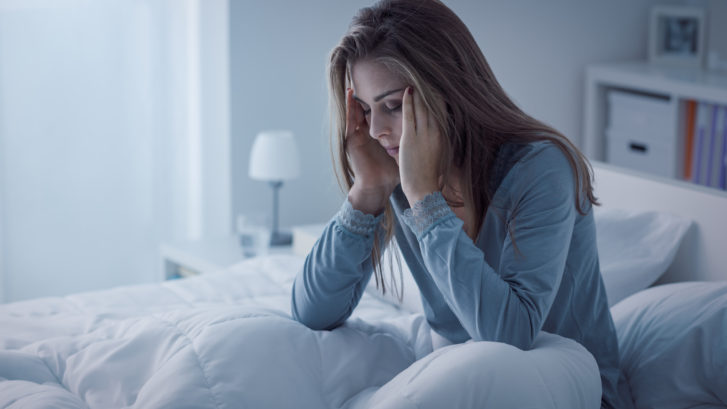A How-To Guide to Battling Insomnia
You lie in bed, trying not to look at the clock, but you know that you have to wake up early. And yet, another half-hour wide awake . . . followed by another hour, then another — Why can’t you sleep? Insomnia plagues many individuals, and your concierge family practice doctors at MD 2.0 in Jupiter, Florida, understand your frustration.
If it’s any consolation, the National Institutes of Health (NIH) estimates that between 30 and 40 percent of the population experience insomnia on a regular basis. In fact — A 2005 National Sleep Foundation (NSF) poll reported that more than 50 percent of respondents experienced insomnia for a few nights a week, while 33 percent said they had insomnia every night (or nearly every night).
What Is Insomnia?
An occasional sleepless night is technically not categorized as insomnia. Ironically — the occasional sleepless night can quickly turn into insomnia when the sufferer begins worrying that it will happen again. The worry feeds the arousal state in the brain, thus leading to night after night of wakefulness.
The two main types of insomnia are categorized according to cause. Primary insomnia is recurrent sleeplessness, which cannot be attributed to any other cause, while secondary insomnia can be traced to a specific cause, such as pain, sleep apnea, overindulgence in food or alcohol, a side effect of medication, and so on. Being unable to obtain the desired amount of sleep for short-term periods is known as acute insomnia (which can last for days). Chronic insomnia is diagnosed in those who have difficulty sleeping three nights a week for a month or longer.
Different Types of Insomnia
There are two different types of insomnia: an inability to fall asleep vs. an inability to stay asleep for the entire night. The latter category is further divided into middle-of-the-night awakening or waking early in the morning without being able to get back to sleep. Some people claim to function mentally and physically on a few hours of sleep every night, but many end up paying for it with fatigue, inability to perform at work, low energy, difficulty concentrating, and even mood disorders. Not to mention, the anxiety associated with being unable to enjoy a full night’s sleep.
The possible causes of insomnia are endless. So what can you do if you’re experiencing this common but exasperating problem? Talk to MD 2.0. Your best approach is to let us perform a physical examination to uncover—or rule out—physical causes. Then we’ll show you how to keep a sleep diary to help track down the cause. Although we may prescribe sleeping pills for very short-term use, these can lead to dependence and we do not recommend their use. In extreme cases, we may refer you to a sleep evaluation center to perform tests, which could reveal underlying causes (such as sleep apnea).
Tips and Tricks
Meanwhile, for intermittent bouts of insomnia, here are some tips you can try.
- Don’t encourage it
Don’t be overly concerned about it. Worrying about falling asleep is one of the best ways to ensure you won’t be able to. And if you’re having trouble sleeping, get out of bed and do something else to take your mind off it. This trains your mind to not correlate your bed with insomnia.
- Don’t feed it
Insomnia thrives on late-night meals and alcohol. It also loves caffeine, which can linger in the body for as long as eight hours after consumption.
- Don’t invite it into your bed
Keep electronic devices out of your bed, and preferably out of your bedroom. The blue lights from screens interrupt the body’s melatonin production, which disrupts the sleep cycle. For the same reason, try to turn off electronic devices at least one to two hours before bedtime.
For any questions on this or other health issues, don’t hesitate to contact us.
We are always here for you.

